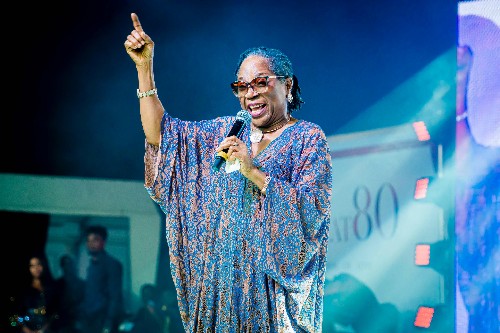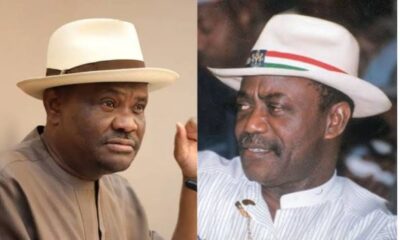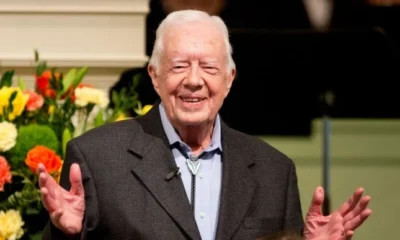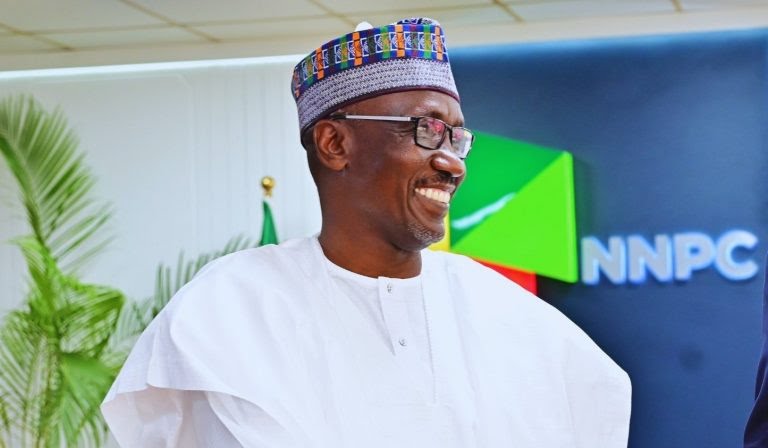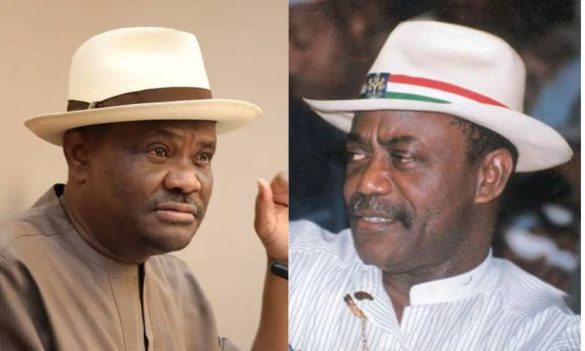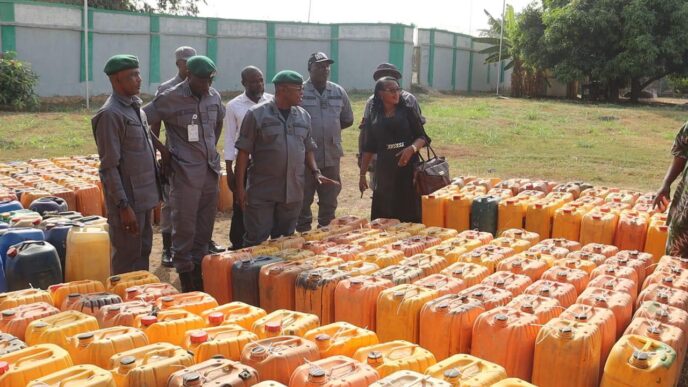Renowned Nigerian music legend, Onyeka Onwenu, has passed away at the age of 72.
Born on January 31, 1952, she died at Reddington Hospital in Lagos after collapsing at a birthday celebration for Mrs. Stella Okoli, the founder of Emzor pharmaceutical company.
Onwenu had performed at the event, which was held to mark Okoli’s 80th birthday.
Witnesses initially thought her collapse was a prank, but sadly, it was confirmed that the music icon had indeed passed away.
“I have never seen anything like this before. She had just come down from the stage after performing energetically and admirably as always. And went to her seat where she slumped. It is still like a dream.”
Another eyewitness said: “It is very sad. Onyeka Onwenu just performed at the birthday of Mrs. Stella Okoli today, and after performing, she slumped. She was taken to Reddington Hospital and she couldn’t make it.”
As at the time of going to press, TheNiche reliably gathered that even the doctors were in disbelief and are yet to take her body to the morgue.
Another source who was among the people that rushed her to the hospital said, “Apparently, she had a heart attack. The doctor has advised that the body should be kept until later this morning. It is unbelievable.”
Onyeka was a singer, songwriter, actress, human rights and social activist, journalist, politician, and former X Factor series judge.
Dubbed the “Elegant Stallion” by the Nigerian press, she is a former chairperson of the Imo State Council for Arts and Culture.
In 2013 she was appointed the Executive Director/Chief Executive Officer of the National Centre for Women Development.
Onwenu hailed from Arondizuogu, a town in Ideato North, Imo State, but was raised in Port Harcourt, the capital city of Rivers State.
She was the youngest daughter of Nigerian educationist and politician D. K. Onwenu, who died when she was four years old in an autocrash a week before his appointment as Minister for Education, leaving his widow, Hope, to raise five children alone.
Onwenu possessed a BA in International Relations and Communication from Wellesley College, Massachusetts, and an MA in Media Studies from The New School for Social Research, New York.
She worked for the United Nations as a tour guide before returning to Nigeria in 1980 to complete her mandatory one-year National Youth Service Corps (NYSC) with the Nigerian Television Authority (NTA), in Lagos, Nigeria.
As an NTA employee, Onwenu made an impact as a newsreader and reporter. In 1984, she wrote and presented the internationally acclaimed BBC/NTA documentary “Nigeria: A Squandering of Riches,” which became the definitive film about corruption in Nigeria, as well as the intractable Niger Delta agitation for resource control and campaign against environmental degradation in the oil rich region of Nigeria.
A former member of the NTA board, she has also worked as a TV presenter, hosting the shows Contact (1988) and Who’s On? (1993) both on NTA Network.
Originally a secular artist, Onwenu made the transition to gospel music in the 90s, and most of her songs are self-penned. She continued to write and sing about issues such as health (HIV/AIDS), peace and mutual coexistence, respect for women’s rights, and the plight of children.
She began her recording career in 1981 while still with the NTA, releasing the album For the Love of You, a pop album which featured an orchestral cover of Johnny Nash’s “Hold Me Tight”, produced by Berkley Jones. Her second album was Endless Life, produced by Sonny Okosun, and included another cover – the Everley Brothers’ “Walk Right Back”. Both records were released under the EMI label.
Onwenu’s first album with Polygram, In The Morning Light, was released in 1984. Recorded in London, it featured the track “Masterplan” written by close friend Tyna Onwudiwe who had previously contributed to Onwenu’s BBC documentary and subsequently sang back-up vocals on the album.
In 1986, she released One Love which contained an updated version of the song “(In the) Morning Light from the previous album. Another song, “You and I”, was re-recorded for the 2001 film Conspiracy starring Nkem Owoh and Onwenu herself.
For the 1988 album Dancing In The Sun, Onwenu adopted a more Afrocentric sound and collaborated with veteran jùjú artist Sunny Ade on the track “Madawolohun (Let Them Say)”. This was the first of three songs the pair worked on together; the other two – “Choices” and “Wait For Me” – centred on family planning, and were endorsed by the Planned Parenthood Federation of Nigeria who used “Choices” in their PSA.
Dancing In The Sun, Onwenu’s final release on Polygram, was dedicated to Winnie Mandela, the subject of a song of the same name which Onwenu performed live when Nelson Mandela and his wife visited Nigeria in 1990 following his release from prison.
Onwenu diverted to Benson and Hedges Music in 1992 and released the self-titled Onyeka!, her only album with the label, after which she made the transition to Christian/gospel music. Her latest collection, “Inspiration for Change,” focused on the need for an attitudinal change in Nigeria.
Onwenu’s first movie role was as Joke, a childless woman who adopts an abandoned baby in Zik Zulu Okafor’s Nightmare.
She has since featured in numerous Nollywood movies, and in 2006 she won the Africa Movie Academy Award for Best Actress in a Supporting Role for her performance in the movie “Widow’s Cot”. She was also nominated that same year for Africa Movie Academy Award for “Best Actress in a Leading Role” in the movie “Rising Moon”.
In 2014 she was in the movie Half of a Yellow Sun with Chiwetel Ejiofor and Thandiwe Newton, and Lion Heart (2018).
Onwenu was a member of the Peoples Democratic Party. She contested twice to become the Local Council Chairman of her Local Government, Ideato North Local Government Area of Imo State, and lost at both attempts but was appointed Chairperson of Imo State Council for Arts and Culture by former governor Ikedi Ohakim. On September 16, 2013, President Goodluck Ebele Jonathan appointed her the Executive Director/Chief Executive Officer of the National Centre for Women Development.
In 2000, Onwenu protested against her former employer NTA over their refusal to pay royalties on her songs (NTA 2 Channel 5 had used “Iyogogo”, a track from the Onyeka! album, in station idents without asking her permission). After then-director general Ben Murray-Bruce blacklisted her from transmission, she embarked on a hunger strike outside the station’s premises.
Onwenu’s activism attracted widespread support from various artists, including Charly Boy, who lambasted Nigeria’s reluctance to pay royalties when songs are broadcast on television and radio. NTA resolved to settle the issue amicably but denied barring Onwenu from appearing on their channels.
The protest was called off after six days when Onwenu and NTA came to an arrangement regarding royalties.
See pictures from Onyeka Onwenu’s last performance below



 BIG STORY3 days ago
BIG STORY3 days ago
 BIG STORY4 days ago
BIG STORY4 days ago
 BIG STORY3 days ago
BIG STORY3 days ago
 BIG STORY4 days ago
BIG STORY4 days ago
 BIG STORY4 days ago
BIG STORY4 days ago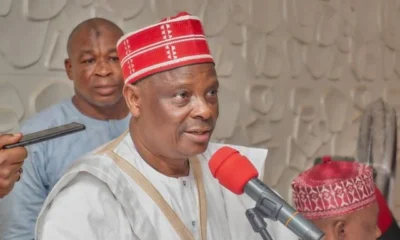
 BIG STORY3 days ago
BIG STORY3 days ago
 BIG STORY2 days ago
BIG STORY2 days ago
 BIG STORY4 days ago
BIG STORY4 days ago




